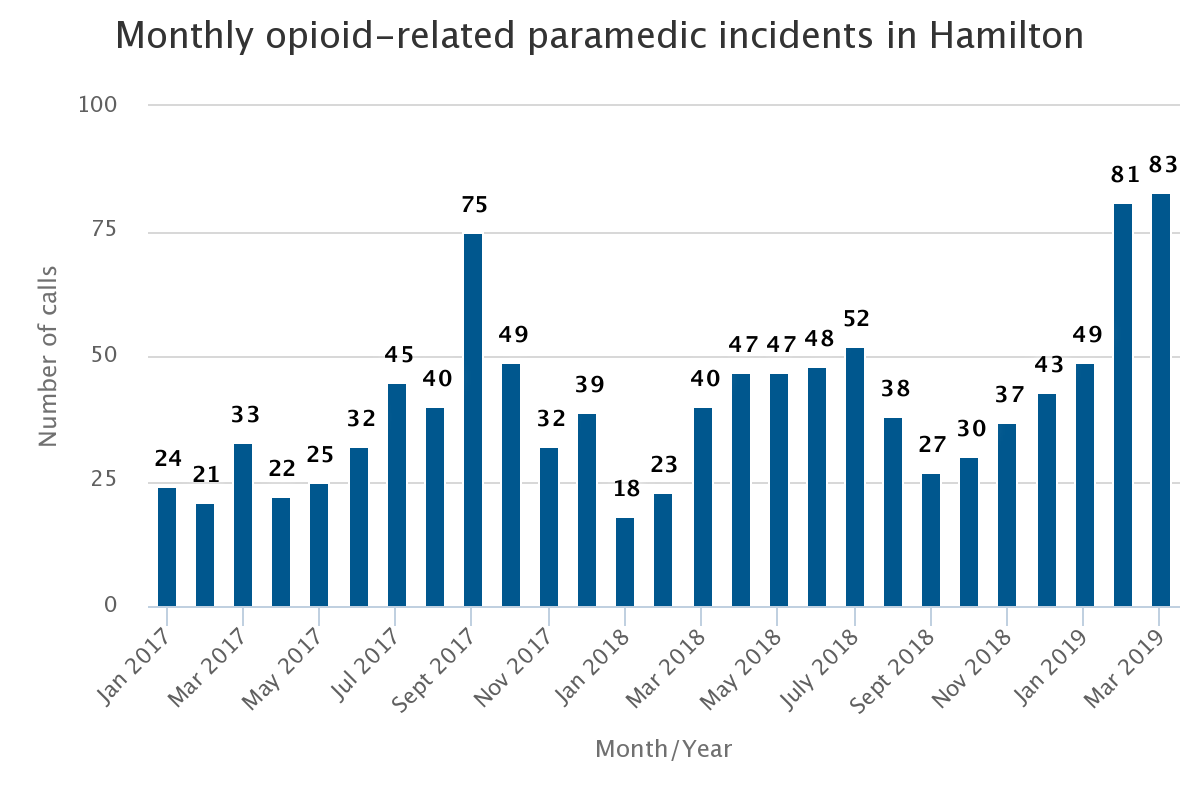Hamilton had a record high number of overdose calls in March.

Public Health says there were 83 calls to paramedics for suspected overdoses last month; compared to 40 in March of 2018.
Since January 2017, the majority of cases (73 per cent) were male, and the average age was 36 years.
In 2018, approximately 450 people called 911 for a suspected opioid overdose, which was about 38 per month.
Paramedic Incidents categorized by ward

Get weekly health news
| Ward | Count | Percent |
|---|---|---|
| 1 | 38 | 3.95% |
| 2 | 349 | 36.24% |
| 3 | 255 | 26.48% |
| 4 | 91 | 9.45% |
| 5 | 63 | 6.54% |
| 6 | 15 | 1.56% |
| 7 | 27 | 2.80% |
| 8 | 21 | 2.18% |
| 9 | 18 | 1.87% |
| 10 | 19 | 1.97% |
| 11 | 6 | 0.62% |
| 12 | 7 | 0.73% |
| 13 | 19 | 1.97% |
| 14 | 24 | 2.49% |
| 15 | 11 | 1.14% |
Fifteen overdose-prevention sites across Ontario have been approved for operation under a new model, the provincial government announced on March 29, in a decision critics called a disaster because six previously licenced sites weren’t given the green light.
“Our government takes the opioids crisis very seriously,” Health Minister Christine Elliott said in a statement. “(The sites) will continue to save lives by preventing overdoses and connecting people to primary care, treatment, rehabilitation and other health and social services to ensure those struggling with drug addiction get the help they need.”
WATCH: Overdose prevention site makes plea to Doug Ford to reverse decision to cut services

The approved sites will operate in high-needs communities, with six of them in Toronto and three in Ottawa. Other cities – London, Guelph, Hamilton, Kingston, St. Catharines and Thunder Bay – will each have one, the government said.
Hamilton has requested a second site.
With files from the Canadian Press
- This H3N2 flu strain is spreading ‘rapidly.’ Why subclade K is hitting hard
- U.S. may soon reclassify marijuana to allow medical research. What to know
- EU proposal would ease cross-border abortion access for women facing bans
- Ontario influenza ICU admissions up 127% in past week, hospital association warns









Comments